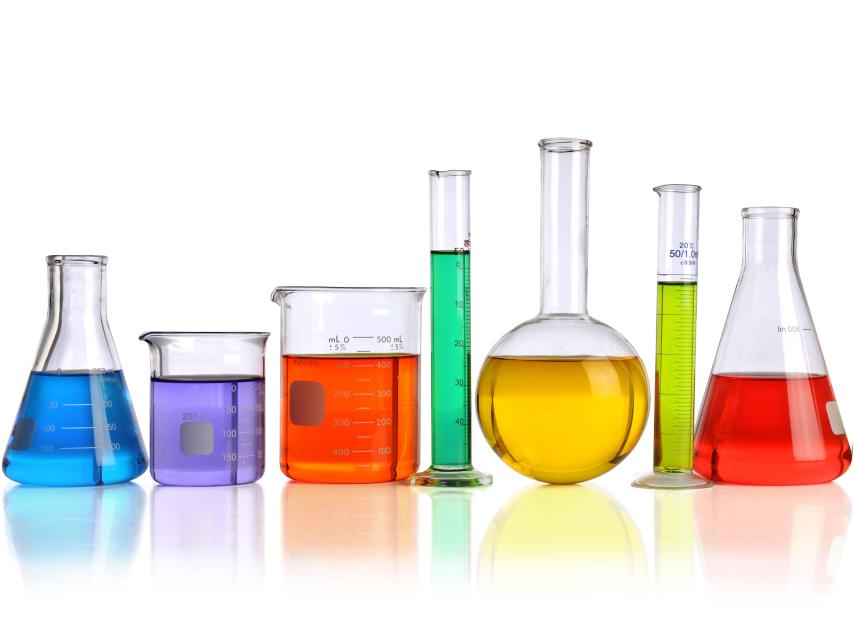Potassium Chloride Inorganic Purity Analysis
The analysis of inorganic purity in potassium chloride (KCl) is a critical process within various sectors such as pharmaceuticals, agriculture, and industrial manufacturing. Ensuring the purity of KCl is essential for maintaining product quality, regulatory compliance, and operational efficiency.
Potassium chloride is widely used across multiple industries due to its unique properties. In the pharmaceutical sector, it serves as a key ingredient in various formulations. In agriculture, it acts as a fertilizer component. Industrially, it finds applications in water treatment processes and as a raw material for other chemical products.
The process of analyzing KCl's inorganic purity involves several steps that ensure precision and reliability. The primary goal is to identify and quantify any impurities or additives present within the compound. This analysis helps manufacturers adhere to strict quality standards and ensures consistency across batches.
Our laboratory employs advanced analytical techniques, including spectroscopic methods and chromatography, to perform this critical analysis. These instruments provide accurate data that are crucial for making informed decisions regarding production processes and product formulations.
The importance of inorganic purity in KCl cannot be overstated. Impurities can lead to unforeseen issues during manufacturing or end-use applications. By conducting thorough analyses, we help our clients mitigate risks associated with substandard materials.
| Key Analytical Techniques | Applications |
|---|---|
| Spectroscopy | Detecting trace elements and contaminants |
| Chromatography | Separating complex mixtures for precise quantification of impurities |
The precision and reliability offered by our laboratory make us a trusted partner in ensuring the highest quality KCl products. Our expertise not only supports compliance with industry regulations but also enhances overall product performance.
Why It Matters
Purity is paramount when dealing with potassium chloride due to its extensive use across various industries. In pharmaceuticals, for instance, impurities can affect the efficacy of medications. Agricultural applications require consistent purity levels to ensure soil fertility and plant health.
- In the pharmaceutical industry, KCl used in formulations must meet stringent purity standards to avoid contamination that could compromise drug stability or safety.
- Agricultural uses demand pure KCl to prevent nutrient imbalances and enhance crop growth.
- Industrial applications also require high-purity KCl for optimal performance of water treatment processes and chemical synthesis.
The importance of purity extends beyond mere quality assurance; it plays a vital role in maintaining consumer trust, regulatory compliance, and operational efficiency. By ensuring the highest standards of purity, we contribute to safer products and more reliable outcomes across all sectors.
Purity analysis is not just about meeting minimum requirements but also about exceeding expectations. It involves continuous improvement and adaptation based on evolving industry trends and technological advancements.
Scope and Methodology
The scope of our KCl inorganic purity analysis encompasses a comprehensive approach that ensures accurate results. Our methodology adheres to international standards such as ISO 17025 for laboratory accreditation and ASTM D4699 for potassium chloride testing.
| Standard | Description |
|---|---|
| ISO 17025 | Laboratory accreditation ensuring competence, impartiality, and quality in analytical services. |
| ASTM D4699 | Procedure for the determination of potassium chloride content by titrimetric methods. |
The process begins with meticulous specimen preparation. This involves grinding KCl samples to a consistent particle size, dissolving them in appropriate solvents, and ensuring homogeneity before analysis.
Our state-of-the-art instrumentation plays a crucial role in this process. We utilize advanced spectroscopic techniques for precise detection of impurities and additives. Chromatographic methods further refine these analyses by separating complex mixtures into their constituent parts.
The final step involves rigorous data interpretation to derive meaningful insights about the purity levels present in KCl samples. This analysis is then reported back to clients with detailed breakdowns and recommendations for any necessary corrective actions.
Customer Impact and Satisfaction
- Enhanced product quality leading to increased customer satisfaction.
- Compliance with regulatory standards ensuring uninterrupted business operations.
- Informed decision-making enabling process improvements and cost savings.
- Better understanding of raw material characteristics facilitating innovation in product development.
- Reputation enhancement through consistent high-quality offerings boosting market share.
Our clients benefit from more than just compliance; they gain a competitive edge by ensuring their products meet the highest quality standards. This translates into better performance, improved safety profiles, and enhanced brand loyalty.
We actively seek feedback from our customers to continuously improve our services. Regular follow-ups and detailed reporting ensure that we remain aligned with customer needs and expectations.





